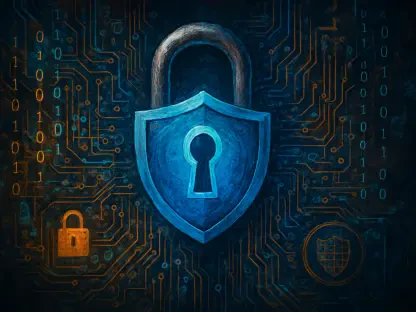In an era where cyber threats are escalating at an alarming rate, particularly in vital industries such as manufacturing, the global shortage of cybersecurity professionals has become a pressing concern, with hundreds of thousands of positions unfilled. Military veterans, equipped with a unique combination of discipline, strategic insight, and a mission-driven approach, are emerging as a powerful force to address this critical gap. Having transitioned from traditional combat zones to the complex terrain of digital defense, these individuals bring a wealth of experience that aligns seamlessly with the demands of protecting against cyberattacks. Their ability to adapt to high-pressure situations and maintain focus on safeguarding assets makes them uniquely suited for this evolving challenge. Inspired by reflections around Veterans Day, this exploration delves into the remarkable contributions of veterans in securing the digital landscape, shedding light on their journey from physical battlefields to virtual frontlines, and highlighting why their skills are indispensable in today’s cybersecurity landscape.
Transitioning to a New Frontline
The concept of a battlefield has undergone a profound transformation for many military veterans entering the cybersecurity field. For individuals like Shawn Dappen, a former Marine now serving as Senior Director at Menlo Security, the shift from physical combat to digital defense feels like a natural progression. Dappen describes this transition as fighting in a “new domain, same fight,” where the core mission of protecting people and critical assets remains unchanged, though the arena is now virtual. This perspective resonates deeply among veterans who view their current roles as an extension of their commitment to national and organizational security. The digital realm, with its unseen enemies and constant threats, mirrors the unpredictability of traditional warfare, making it a familiar yet challenging space for those accustomed to defending against adversaries. Their military background instills a sense of purpose that drives them to safeguard data and systems with the same intensity they once applied to physical territories, highlighting a seamless alignment between past and present duties.
Beyond the conceptual shift, the emotional and professional continuity veterans experience in cybersecurity is striking. Many express that defending digital infrastructure feels like a direct continuation of their service, albeit with different tools and tactics. The sense of duty that guided them through military operations now fuels their efforts to counter cyber threats targeting critical sectors. This mindset is not just about technical skills but also about a deep-rooted commitment to protection, whether it involves thwarting a ransomware attack or securing sensitive information. Veterans often find that the high-stakes nature of cybersecurity parallels the intensity of military missions, requiring rapid decision-making and unwavering focus. Their ability to remain composed under pressure, a trait honed through years of service, becomes a vital asset in managing crises that can disrupt entire organizations. This unique blend of dedication and resilience positions them as formidable guardians in a landscape where breaches can have catastrophic consequences, proving that their fight for safety endures in a modern context.
Leveraging Military Training for Cyber Challenges
Military training provides veterans with a robust foundation that translates effectively into the demands of cybersecurity roles. Frankie Sclafani, a veteran of the U.S. Air Force and Air National Guard with experience at high-profile entities like the NSA and U.S. Cyber Command, underscores how core attributes such as mission focus, adaptability, and teamwork are directly applicable to tasks like malware analysis and incident response. These skills, developed in environments where precision and collaboration are non-negotiable, enable veterans to dissect complex cyber threats with a methodical approach. The structured thinking and ability to execute under duress, often learned during deployments or intense training scenarios, equip them to navigate the unpredictable nature of digital attacks. As cyber threats evolve in sophistication, the capacity to remain agile and mission-oriented becomes a critical advantage, allowing veterans to contribute meaningfully to defense strategies that protect vital systems from compromise.
Moreover, the technical exposure many veterans gain during their service further enhances their suitability for cybersecurity careers. Roles in the military often involve handling sophisticated technology and managing communications under challenging conditions, which parallels the need to secure networks and respond to breaches in the corporate world. The experience of working with limited resources or incomplete intelligence, a common scenario in military operations, prepares them to tackle cyber incidents where full information may not be immediately available. This adaptability is particularly valuable in fast-moving situations, such as mitigating the fallout from a data breach or countering an active threat. Veterans bring a problem-solving mindset that prioritizes outcomes over obstacles, ensuring that defensive measures are both proactive and reactive as needed. Their military-honed instincts for identifying vulnerabilities and executing coordinated responses make them indispensable in a field where every second counts, bridging the gap between tactical experience and technological application.
Unmatched Discipline in High-Stakes Scenarios
One of the most significant contributions veterans offer to cybersecurity is their exceptional discipline and reliability, especially in high-pressure situations. Sclafani emphasizes that veterans can be counted on to address urgent cyber incidents at any hour, approaching these challenges with the same gravity as a military operation. Whether it’s responding to a server breach in the middle of the night or coordinating a team to contain a spreading virus, their commitment to duty ensures a steadfast response. This level of professionalism, ingrained through years of adhering to strict protocols and maintaining composure in crises, sets them apart in an industry where delays or hesitation can lead to significant losses. Their ability to prioritize tasks and execute plans under stress transforms them into anchors for teams facing the chaos of digital threats, providing stability when it’s most needed and ensuring that defensive efforts are not derailed by panic or indecision.
Additionally, the capacity to operate effectively with incomplete data, a skill often developed in military contexts, proves invaluable in cybersecurity recovery efforts. Jeff Liford, a former All Source Intelligence Analyst, points out that military training emphasizes decision-making in ambiguous situations, a capability that directly applies to scenarios like ransomware attacks where full details may be unclear. Veterans are accustomed to piecing together fragmented information to form actionable strategies, a process that mirrors the need to assess and mitigate cyber risks swiftly. This pragmatic approach allows them to maintain operational continuity even when faced with uncertainty, ensuring that organizations can recover without succumbing to prolonged disruptions. Their disciplined mindset, coupled with a readiness to act decisively, fortifies cybersecurity teams against the unpredictability of modern threats, offering a layer of assurance that critical systems will be protected and restored with minimal impact, regardless of the complexity involved.
Facilitating the Path to Cybersecurity Careers
While veterans possess inherent strengths for cybersecurity roles, targeted support remains essential to ease their transition into this technical field. Shawn Dappen advocates for initiatives such as mentorship programs and partnerships with veteran organizations to help close any skill gaps and provide clear entry points into the industry. These resources can offer guidance on navigating the often complex landscape of certifications and job requirements, ensuring that veterans are not deterred by initial barriers. By connecting them with experienced professionals who understand both military and civilian contexts, such programs can demystify the path to roles in threat intelligence or incident response. The emphasis on structured support reflects a broader recognition that while the mindset and foundational skills are present, practical avenues for skill enhancement and career integration are crucial to maximizing veterans’ potential in defending digital environments against evolving risks.
Further support comes from established initiatives designed to bridge military and civilian careers, providing veterans with hands-on opportunities. Sclafani highlights programs like SkillBridge, which enables active-duty personnel to intern with companies for extended periods, offering real-world exposure to cybersecurity challenges. Additionally, communities like VetSec foster networking and peer support, creating spaces where veterans can share experiences and access resources tailored to their unique needs. These platforms not only facilitate skill development but also build confidence by connecting transitioning service members with others who have successfully made the leap. The availability of such structured pathways underscores the importance of collaboration between industries and veteran-focused groups to ensure that the transition is not just feasible but also sustainable. By investing in these mechanisms, the cybersecurity field can tap into a wealth of talent that is eager to contribute, strengthening defenses through a diverse and dedicated workforce.
Tapping into a Vital Talent Resource
The cybersecurity industry is increasingly acknowledging veterans as a crucial talent pool to address the persistent skills shortage plaguing the sector. With their strategic thinking, technical aptitude, and inherent defense-oriented mindset, veterans are ideally suited for roles spanning threat intelligence, incident response, and even leadership positions within security teams. This growing recognition goes beyond merely filling vacant positions; it reflects an understanding that veterans bring a unique perspective shaped by real-world experience in high-stakes environments. Their ability to approach problems with a mission-driven focus enhances the resilience of organizations facing sophisticated cyber threats. As industries like manufacturing become prime targets for attacks, the integration of veterans into cybersecurity roles offers a strategic solution, leveraging their skills to fortify defenses and ensure that critical operations remain secure in an increasingly hostile digital landscape.
This trend also highlights a shift in how talent acquisition strategies are evolving to prioritize diverse backgrounds and experiences. Veterans contribute more than technical know-how; they bring a sense of accountability and a proven track record of handling pressure, which can elevate team dynamics and improve overall response capabilities. Their presence in the workforce serves as a reminder that cybersecurity is not just about tools and systems but also about the people who operate them with integrity and determination. By valuing the distinct qualities veterans offer, companies can build more robust security frameworks capable of withstanding complex challenges. This alignment between military expertise and cybersecurity needs represents a forward-thinking approach to talent management, ensuring that the industry not only addresses immediate shortages but also prepares for future threats by cultivating a workforce that is both skilled and steadfast in its commitment to protection.
Continuing the Mission in a Digital Era
For countless veterans, entering the cybersecurity field represents a meaningful opportunity to sustain their legacy of service in a new domain. The parallels between military operations and cyber defense are evident, whether it’s adapting to unseen threats or leveraging intelligence to outmaneuver adversaries. This digital battlefield, much like the physical ones they once navigated, demands quick thinking and a relentless focus on safeguarding what matters most. Veterans find that their past experiences in dynamic, high-pressure settings equip them to protect critical infrastructure and organizational assets with a renewed sense of purpose. Their contributions go beyond technical defense, embodying a commitment to societal safety that mirrors their military ethos, ensuring that the values of duty and protection remain at the forefront of their efforts in this modern arena of conflict.
Reflecting on their impact, it’s clear that veterans have played a pivotal role in strengthening cybersecurity defenses across various sectors in recent times. Their journey from military service to digital guardianship demonstrates a remarkable adaptability, as they apply hard-earned skills to counter emerging threats with precision. Looking ahead, the focus should shift toward expanding access to training programs and career pathways that further empower veterans to excel in this field. Collaboration between technology firms, government entities, and veteran support networks could pave the way for innovative solutions, ensuring that this talented group continues to thrive. By fostering an environment where their expertise is not only welcomed but actively cultivated, the cybersecurity landscape stands to gain immeasurable strength, ready to face future challenges with a fortified line of defense driven by those who have already proven their dedication to safeguarding others.









